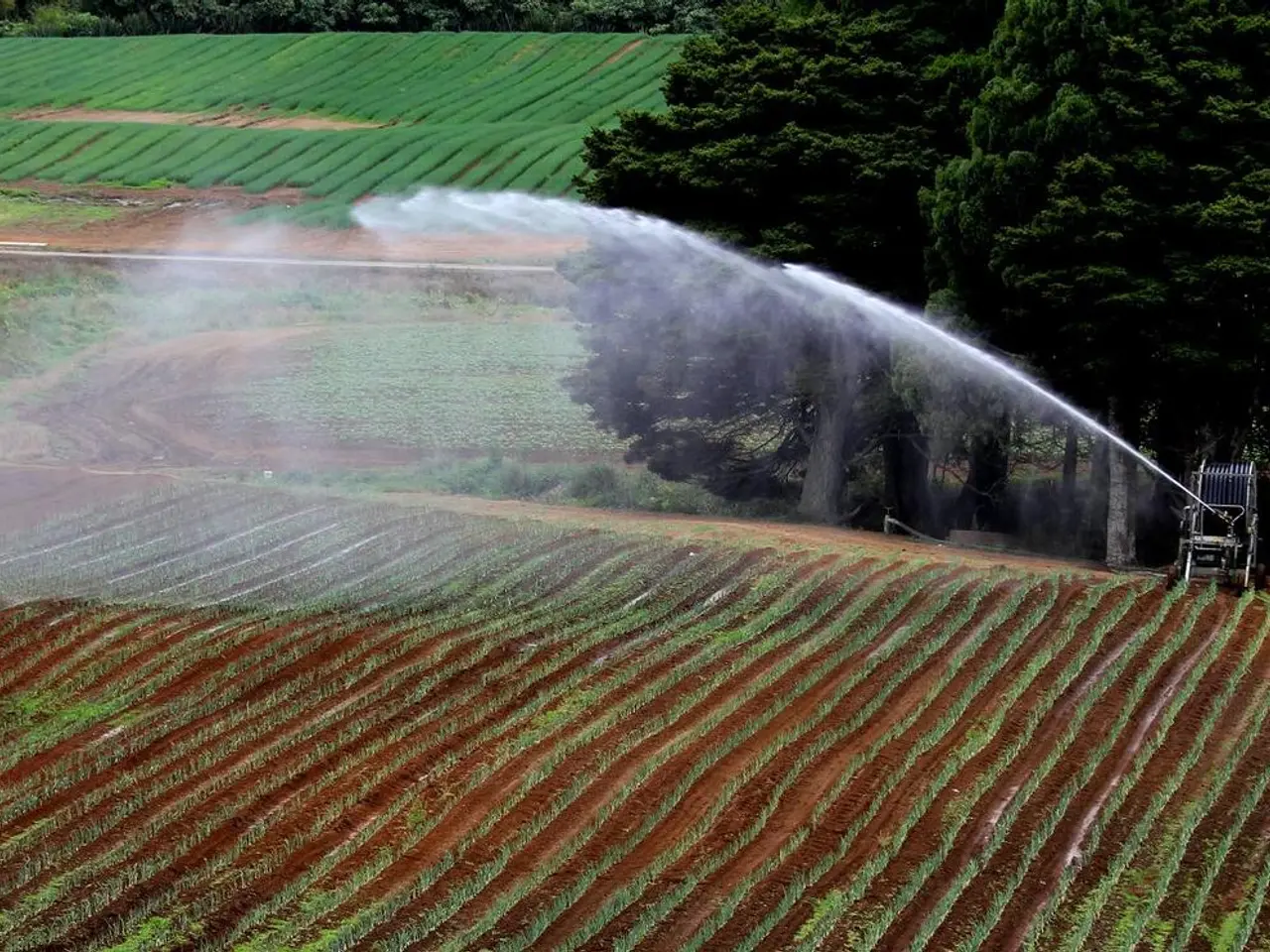Harvest Drought-Resistant Mangalwedha Millet: Boost Income with Demanding, Geographical Indication Protected Produce
Mangalwedha Jowar, a unique sorghum variety native to the Mangalwedha region in Maharashtra, is making waves in the agricultural and food sectors. This distinct crop has been awarded the Geographical Indication (GI) recognition, marking its significance and promoting its growth in both domestic and international markets.
The Significance of Mangalwedha Jowar
Mangalwedha Jowar is well-adapted to the semi-arid, drought-prone conditions of its native region. Its resilience to harsh climatic stresses and limited water resources makes it a valuable crop for the area. This sorghum variety is also renowned for its superior taste, fine texture, and nutritional qualities compared to common jowar varieties. It offers higher fiber, essential minerals like iron, and antioxidants, making it a nutritious choice for health-conscious consumers and the food industry.
Culturally, Mangalwedha Jowar plays a significant role in the local food culture and traditional agricultural practices. It serves as the base for various traditional dishes, such as Jowar Bhakri (a staple flatbread), Hurda (roasted tender Jowar mixed with spices), and Groundnut Chutney (a flavorful accompaniment rich in protein).
Contribution to Food Security
Mangalwedha Jowar's drought tolerance ensures a stable grain yield in regions where other staple crops might fail, helping to stabilize food availability. As a rich source of nutrients, including protein and micronutrients, it bolsters nutrition in rural diets, helping combat malnutrition. Cultivating this local variety encourages crop diversification, reducing dependence on a single crop and improving resilience against pests, diseases, and climate shocks.
Role in Supporting Rural Livelihoods
Farmers growing Mangalwedha Jowar often face fewer input costs due to its natural adaptation (less need for irrigation, fertilizers, and pesticides), reducing cultivation expenses and improving net income. Its premium quality and unique properties fetch better market prices compared to generic varieties, offering better returns to farmers. Sustaining cultivation of this traditional variety supports smallholder farmers and preserves indigenous knowledge related to seed selection and sustainable farming practices.
Contribution to Sustainability
Growing Mangalwedha Jowar requires less water and minimal chemical inputs, enhancing sustainable land and water use. The crop’s cultivation under dryland conditions helps maintain soil structure and prevent degradation, as it suits rainfed agriculture and often fits into traditional crop rotation patterns. By promoting cultivation of drought-tolerant indigenous varieties like Mangalwedha Jowar, agricultural systems become more resilient to climate variability and long-term changes.
The GI tag for Mangalwedha Jowar ensures that only sorghum grown in Mangalwedha's specific climatic and soil conditions can be marketed under this name. This protection safeguards the legal rights of farmers while promoting authenticity in marketing the crop. The GI tag also protects farmers' rights, promotes fair pricing, and enhances market recognition for Mangalwedha Jowar.
The growing demand for Jowar-based products, such as flour, flakes, and ready-to-eat meals, has created entrepreneurial opportunities for local farmers, food processors, and agricultural cooperatives. This not only boosts rural economies but also preserves traditional knowledge and practices related to the cultivation and processing of this unique sorghum variety.
In conclusion, Mangalwedha Jowar embodies a synergy of food security, economic sustainability, and ecological balance. Its cultivation ensures a reliable source of nutrition and income for rural farmers, while supporting sustainable agriculture in a fragile agro-ecological zone. Protecting and promoting such traditional varieties is vital for strengthening local food systems, preserving biodiversity, and enhancing resilience against future environmental challenges.
An entrepreneur with a focus on food-and-drink can establish a successful business by partnering with farmers growing Mangalwedha Jowar, a unique sorghum variety, to produce high-quality traditional dishes like Jowar Bhakri, Hurda, and Groundnut Chutney. The GI tag for Mangalwedha Jowar offers a competitive advantage for these businesses, ensuring authenticity and safeguarding farmers' rights, thereby boosting their profitability in the food and agriculture sector.
The cultivation and consumption of Mangalwedha Jowar not only contribute to a healthy lifestyle for consumers due to its rich nutritional content, but also support sustainable finance through reduced input costs for farmers and the creation of entrepreneurial opportunities, ultimately strengthening rural livelihoods and promoting local food systems.




